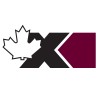New Brunswick hands service commissions $40M for economic development, newcomer retention
Money to be split among 10 of province's 12 commissions as they take on new tasks
The New Brunswick government says it will transfer $40 million over the next decade to the province's regional service commissions to fund economic development, newcomer retention and labour force development.
The spending was announced Tuesday a month after local governance reforms required the commissions to offer more services.
The funding will be allocated to 10 of the 12 commissions based on a per capita formula. The Fundy Regional Service Commission around Saint John area and the Capital Regional Service Commission around Fredericton are excluded because they have separate agreements with the province.
"This is actually focused on a couple of key issues around population growth, making sure we maintain that growth, making sure that we meet our labour market demands," Trevor Holder, the province's minister of Post-Secondary Education, Training and Labour, told reporters.
 Daniel
Allain, New Brunswick's minister of Local Government and Governance
Reform, says the move is meant to allow each region to decide what works
best for them. (Shane Magee/CBC)
Daniel
Allain, New Brunswick's minister of Local Government and Governance
Reform, says the move is meant to allow each region to decide what works
best for them. (Shane Magee/CBC)
Holder and Daniel Allain, the minister of Local Government and Governance Reform, said the funding will allow each region to decide what works best for their area instead of having decisions made by the province.
"Fredericton is not that smart. People in regions are smarter," Allain said during a press conference in Moncton attended by various mayors, regional commission staff and others.
The ministers said the government will sign performance-based funding agreements with the commissions.
The 12 commissions, which began in 2013, were originally mandated to provide services like solid waste and regional planning. They could opt to also offer some other services like regional tourism promotion and economic development.
Local government reforms that kicked in Jan. 1 expanded the required services to economic development, community development, regional tourism promotion, regional transportation and cost sharing on regional recreational infrastructure.
On economic development, the ministers said the commissions can take on the task in-house or use a third-party organization.
Moncton, Dieppe and Riverview had jointly funded an economic development agency called 3+ Corp.
Roland LeBlanc, CEO of the commission, said the Southeast Regional Service Commission that includes those communities had already opted to carry out economic development. He said some 3+ employees now work for the commission and the mandate will expand to the region.
"So a bit of a change with this new funding — very exciting for the region — it gives us a great opportunity to invest in workforce development, workforce retention and population growth," Leblanc said.
 Moncton Mayor Dawn Arnold hopes the funding will help to retain people in the community. (Shane Magee/CBC)
Moncton Mayor Dawn Arnold hopes the funding will help to retain people in the community. (Shane Magee/CBC)
Moncton Mayor Dawn Arnold said much of the existing immigration services funding is focused on permanent residents, which left international students and others largely to volunteer groups to support.
"We need to be able to provide the proper services to attract, retain and give newcomers that real sense of belonging in our community," Arnold told reporters, saying it's hoped the funding will allow that to happen.
Dan Murphy, executive director of the Union of Municipalities of New Brunswick representing communities across the province, told reporters the funding is a good start.
"What we've been looking for anytime we deal with the province is a long-term period that it's agreed to. Ten years is certainly a good start for that," Murphy said.
Allain told reporters the province will be making more announcements in the future about the other aspects of the commissions and local governance reforms.
Corrections
- An earlier version of this story said incorrectly that the funding is for 11 service commissions. In fact, it's for 12.Jan 31, 2023 5:48 PM AT
Allain said the province had heard concerns from communities about fully implementing the suggestions at this point.
"Sounds like they want to bring back county level gov. Why not just setup the old county system and fund per capita for those services run by them if they feel funding municipalities is too much an issue?"
An Act to Authorize the Municipality of the County of Westmorland to Employ a County Manager or Administrator, SNB 1956, c 143
Yea Right
Alex Scholten, president of the Union of Municipalities of New Brunswick spoke to reporters at the legislature in Fredericton on Oct. 4, 2022. He said the association representing 61 communities supported local government reforms with the understanding there would be funding to cover added costs. But, he said the changes announced represent a downloading of responsibilities taxpayers may need to cover.
"It's not something we particularly cherish in terms of having to charge residents more, but it is going to be difficult decisions around the budget tables across the province this year."
"Sounds like they want to bring back county level gov. Why not just setup the old county system and fund per capita for those services run by them if they feel funding municipalities is too much an issue?"
Me too
FYI My Father was County Administrator Westmorland County until Little Louie centralized the government then he was appointed Supervisor of Taxation for the entire province
An Act to Authorize the Municipality of the County of Westmorland to Employ a County Manager or Administrator, SNB 1956, c 143, < https://canlii.ca/t/54z48> retrieved on 2023-01-31
Didn't she advertise how cheap houseing was in New Brunswick to get carpetbaggers to buy up our apartment buildings and ratchet up rent?
"We are very anxious to get that comprehensive tax reform in place before any of the equalization payments are changed," Moncton Mayor Dawn Arnold said Monday evening.
Last year, Moncton received nothing under the equalization side, but more than $3.2 million as a core grant. That will be reduced to $2.58 million next year.
"Any loss in revenues is something that we need to make up and it's something that the citizens of Moncton, the taxpayers of Moncton again would lose and they will need to make up the balance," Jacques Doucet, the city's chief financial officer, said Monday.
Moncton, Dieppe and Riverview had jointly funded an economic development agency called 3+ Corp.
Roland LeBlanc, CEO of the commission, said the Southeast Regional Service Commission that includes those communities had already opted to carry out economic development. He said some 3+ employees now work for the commission and the mandate will expand to the region.
"So a bit of a change with this new funding — very exciting for the region — it gives us a great opportunity to invest in workforce development, workforce retention and population growth," Leblanc said. "
Deja Vu Anyone???
Trial set for former Moncton economic development VP accused of theft, fraud
Daniel Bard, 58, was vice-president of investment attraction for 3+ Corporation
Shane Magee · CBC News · Posted: Dec 15, 2022 12:53 PM AST
N.B. government overhauls way it funds municipalities
Province to redirect money to equalization, regional service commission fund
Daniel Allain, the minister of local government and local governance reform, introduced legislative amendments Tuesday afternoon. Funding for communities will be frozen at $75.6 million for five years.
The changes will see a grant municipalities received phased out, with funds redirected to regional service commissions which take on more services.
Allain said the province heard municipalities and their associations calling for stability as major local governance reforms take place. He said that's why some aspects of the existing system will remain as others are phased out.
"We're trying to stop the highs and lows of municipal reform," Allain said.
 Alex
Scholten, president of the Union of Municipalities of New Brunswick,
speaks to reporters at the legislature in Fredericton on Oct. 4, 2022. (Jacques Poitras/CBC)
Alex
Scholten, president of the Union of Municipalities of New Brunswick,
speaks to reporters at the legislature in Fredericton on Oct. 4, 2022. (Jacques Poitras/CBC)
Alex Scholten, president of the Union of Municipalities of New Brunswick, says the association representing 61 communities supported local government reforms with the understanding there would be funding to cover added costs.
But, he said the changes announced represent a downloading of responsibilities taxpayers may need to cover.
"It's not something we particularly cherish in terms of having to charge residents more, but it is going to be difficult decisions around the budget tables across the province this year."
Allain, responding to concerns later on Tuesday, said the province isn't cutting spending. Instead it is transferring money to help fund regional service commissions. The minister said that should lower the bills municipalities face to help fund the commissions.
"So, hence, it's pretty much equal," Allain said.
Equalization remains
The funding system in place since 2013 has what's known as a core funding component most communities received and an equalization grant that some received.
Equalization stems from the Equal Opportunity Program in the 1960s. Tax revenue collected by the province is distributed to communities with a lower financial capacity, so residents across the province have access to comparable municipal services.
"Fundamentally, the $75.6 million, what's it for? It's to make sure that we help — as the federal government does to the provinces — that we help municipalities that need not a hand out, but a hand up," Allain said.
While equalization will remain, the formula used to calculate it will compare a community's annual tax base growth to the provincial tax base growth.
Scholten said municipalities wanted changes to equalization.
"This model is not effective," Scholten said. "There was a lot of issues with how the numbers were arrived at, how the formula didn't make a lot of sense when you compared what one municipality got versus another."
Core grant to be phased out
The core grants aspect will be reduced and phased out over five years.
Allain said that's because the province is giving communities the ability to set a local property tax rate on non-residential and heavy industrial properties at a range of 1.4 to 1.7 times the residential rate.
That leaves it to each community to make up for losses from the end of the core grant.
Allain said the funding isn't being cut but redirected. Instead, it will go into a pool of money used to fund the expanded role of the 12 regional service commissions.
Commissions mandated to deal with things like garbage collection and land-use planning will take on regional economic development, tourism promotion, regional transportation and cost-sharing of recreational infrastructure.
Allain said some commissions had already started carrying out those tasks, but they all will now be required to provide those services.
The government moved to limit time to debate of the bill enacting the changes to speed its passage in the legislature.
New Brunswick Liberal Leader Susan Holt told reporters it's a "huge bill that impacts every single New Brunswicker, even though it's complex to understand," and the party's MLAs will try to represent those concerned about the issue as it is debated.
"We've got less than two days to debate a massive piece of legislation and so it it doesn't feel like democracy," Holt said.
The changes are likely to affect budgets in several of the province's largest cities that received millions in payments that will now be phased out.
Fredericton received more than $1.9 million as a core grant this year. Figures released Tuesday show that would be reduced to about $1.6 million in 2023. Its regional service commission grant would be about $545,350.
The association representing the province's cities had called on the province to hold off on changes that would affect their finances until comprehensive tax reforms are implemented, something the province doesn't plan to start until 2024.
 Moncton
Mayor Dawn Arnold says cities wanted to have tax reforms completed
before seeing changes to the province's funding system. (Shane Magee/CBC)
Moncton
Mayor Dawn Arnold says cities wanted to have tax reforms completed
before seeing changes to the province's funding system. (Shane Magee/CBC)
"We are very anxious to get that comprehensive tax reform in place before any of the equalization payments are changed," Moncton Mayor Dawn Arnold said Monday evening.
Last year, Moncton received nothing under the equalization side, but more than $3.2 million as a core grant. That will be reduced to $2.58 million next year.
"Any loss in revenues is something that we need to make up and it's something that the citizens of Moncton, the taxpayers of Moncton again would lose and they will need to make up the balance," Jacques Doucet, the city's chief financial officer, said Monday.
The changes will see the province adopt some of the 12 recommendations made by an expert panel in a report released last week, but ignore others.
Allain said the province had heard concerns from communities about fully implementing the suggestions at this point.
He said the formula the province is establishing should be reviewed in five years, but the legislation won't require that review.
An Act to Authorize the Municipality of the County of Westmorland to Employ a County Manager or Administrator, SNB 1956, c 143, < https://canlii.ca/t/54z48> retrieved on 2023-01-31
-
And there it is folks!



 Lawyer
Darius Bossé, who is the claimant in this case, says he should have
been able to easily use either official language when he was
communicating with the federal government information about his health
and location. (Simon Lasalle/Radio-Canada)
Lawyer
Darius Bossé, who is the claimant in this case, says he should have
been able to easily use either official language when he was
communicating with the federal government information about his health
and location. (Simon Lasalle/Radio-Canada)








